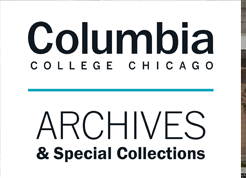Document Type
Article
Loading...
Publication Date
Spring 2009
Keywords
Equality before the law, Marcus Garvey, Universal Negro Improvement Association, Jamaican American Industrial League, Jamaica, New York (N.Y.), Racial profiling in law enforcement, Black Muslims, Sharpeville Massacre, Malcolm X, Bronx Community College, Movimento Popular de Libertacao de Angola, Frente Nacional de Libertacao de Angola, Unaio Nacional para a Independencia Total de Angola, Chicago Committee in Solidarity with Southern Africa, Lena Maguey, Dennis Goldberg, African National Congress, Nelson Mandela, Zimbabwe, Danny Schecter, Students, Political activity
Disciplines
African History | Cultural History | Political Science | Political Theory | Race and Ethnicity | Race, Ethnicity and Post-Colonial Studies | Work, Economy and Organizations
Abstract
Length: 73 minutes
Oral history interview of Basil Clunie by Juston Ori
Basil Clunie recalls growing up in New York, attending cricket games, and following the Dodgers baseball team, especially Jackie Robinson. Education was an important part of his family, as his parents came to New York to for education, with his mother earning a degree in math and his father a pharmacy degree. He mentions describes about the organizations he worked with during his time in the anti-apartheid movement and recalls the sparked his activism in 1961. He discusses the 1964 race riots in Harlem, Marcus Garvey, Malcolm X, and instances of discrimination he experienced. He speaks about his involvement with college student groups in New York, and later in Chicago, his work with the Coalition for Illinois Divestment from South Africa and the Chicago Committee in Solidarity in South African (CCISSA). He recounts the annual fund-raising event the Soweto Day Walkathon, designed to raise money for direct support to South African organizations. Funds the first year went to National Medical and Dental Association of South Africa, another year, to the South African Counsel Church.
Recommended Citation
Ori, Juston. "Interview with Basil Clunie" (Spring 2009). Oral Histories, Chicago Anti-Apartheid Collection, College Archives & Special Collections, Columbia College Chicago. http://digitalcommons.colum.edu/cadc_caam_oralhistories/7
Creative Commons License

This work is licensed under a Creative Commons Attribution-NonCommercial-No Derivative Works 4.0 International License.
Included in
African History Commons, Cultural History Commons, Political Theory Commons, Race and Ethnicity Commons, Race, Ethnicity and Post-Colonial Studies Commons, Work, Economy and Organizations Commons



Biography and Comments
Basil Clunie was born in New York to parents from Jamaica, West Indies. Studying International Relations focused on Africa, he graduated from City College of New York, with graduate education at Northwestern University and the Kellogg Graduate School of Management. He has been involved in activist work since the early 1960s after hearing about the Sharpsville Massacre in South Africa. He joined the Coalition for Illinois Divestment from South Africa (CIDSA) toward the passage of an Illinois South African Divestment bill and later served as co-chair of the Chicago Committee in Solidarity with Southern Africa (CCISSA) from its establishment in the 1980s through the first elections in South Africa. When South Africa’s first free elections were held, he led a team of election observers in the Eastern Cape Province. An administrator at Northwestern and at Chicago State University, he also taught courses at Columbia College Chicago.
The interviewer conducted this oral history as part of his/her coursework for the Spring 2009 class, Oral History: The Art of the Interview. This interview supports the scope and content of the Chicago Anti-Apartheid Movement Collection at the College Archives & Special Collections department of Columbia College Chicago. Contact archives@colum.edu for more information and to view the collection.